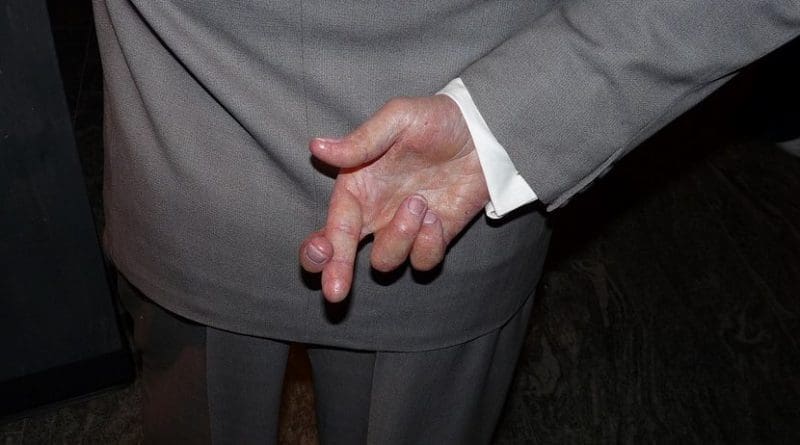Student Attitudes Toward Cheating May Spill Over Into Their Careers
A recent study authored by professors at two California State University campuses, including San Francisco State University, found that students’ tolerance for cheating has a high probability of bleeding over into their careers later on.
That’s concerning to San Francisco State Professor and Chair of Marketing Foo Nin Ho, a co-author of the study. “If [students] have this attitude while they’re in school — that it’s OK to cheat in school — that attitude unfortunately will carry over to the corporate boardroom,” he said.
The study tackles two questions: If students tolerate cheating in the classroom, will they also tolerate unethical behavior in their careers? And what’s shaping these attitudes? Part of the researchers’ intention behind the study was to give educators insight into what’s happening in their classrooms so they can challenge and possibly change student beliefs about cheating.
The fear is that these lax attitudes, if left unchecked, could manifest later as turning a blind eye to unethical business behavior or participating in a cover-up, says the study’s lead author, California State University San Marcos Professor of Marketing and Chair of Management Glen Brodowsky.
To conduct the study, the authors surveyed nearly 250 undergraduate marketing students from Cal State San Marcos and SF State. Students were asked to respond to statements about cheating and ethics such as “It’s cheating to ask another student what was on the test” and “Within a business firm, the ends justify the means.” They were asked to choose a response along a scale that ranged from strongly agree to strongly disagree.
The survey found that students who were more tolerant of cheating in a classroom also demonstrated an openness to unethical behavior on the job. The authors then went a step further and pinned down the underlying forces influencing these attitudes.
Ho and his collaborators modeled their study on older ones about cheating and ethical behavior. One previous study about ethical decision-making identified two traits, individualism and collectivism, as the biggest cultural factors in determining how people resolve conflicts in a way that’s mutually beneficial. So they decided to measure whether being an individualist or a collectivist led students to be more or less tolerant of cheating.
The results revealed that group-oriented students, or collectivists, had a more laissez-faire attitude toward cheating than their more individualistic classmates. Collectivists want to maintain group cohesion, so they’re more likely to be OK with unethical behaviors, Brodowsky says. “To save face they might count on cheating to make sure they all do well. They also won’t rat each other out because that will make people look bad.”
Brodowsky gave an example of how this could play out in a class: Some students face enormous pressure from their families to succeed in college, so those students may engage in cheating to avoid the shame of flunking out.
But Ho and Browdosky are quick to point out that just being from a collectivist or individualistic culture doesn’t define who a student is. “Just because a student is part of one culture doesn’t mean they’ll be more tolerant of cheating,” Ho added. Their survey measured individual attitudes shaped in part by culture — an important distinction, they say.
Understanding the cultural forces at work could help professors develop culturally sensitive ways to minimize these unethical behaviors in their classrooms.
“As professors, we need to set the tone and say, ‘This is what’s not rewarded in the classroom’ and train students that following ethical behavior leads to better outcomes,” Brodowsky said. “So when they graduate and work for companies they will better equipped to evaluate that situation.”

